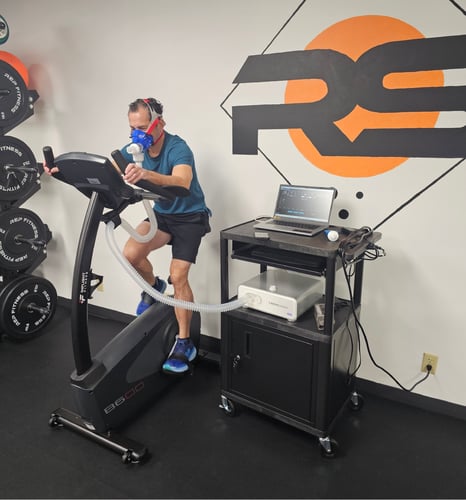Get out of pain. Get back to life.

We provide unparalleled sports, orthopedic, and pelvic floor physical therapy along with VO2 testing, metabolic testing, and nutritional counseling. Our mission is to help eliminate your pain and maximize your sport and fitness performance.
Rock Solid is much more than rehab through pain or injuries. If you truly want to remain as active and healthy as possible, we are experts at setting you up for long-term health and success.
Tired of Low-Quality Rehab?
Has Therapy Wasted Your Time Before?
Rock Solid is the high-quality therapy and sport performance facility you've been seeking. We guarantee your experience here will be anything but wasteful.

Other Clinics:
- Schedule you together with other patients.
- Try to get as many sessions out of you as possible.
- Get you to "good enough" and then discharge you.
- Only focus on one area, not you as a whole person!
Rock Solid:
- Devotes our entire focus to you in a 1-on-1 setting.
- Develops customized plans of care to fit your goals.
- Maximizes your fit and active lifestyle post-injury.
- Personalizes our approach to ALL of your needs!
Our Mission: Optimize Your Health and Fitness
Rock Solid has the resources to not only resolve your pain and rehab your injury, but also to maximize your overall health and fitness for a long-term high quality lifestyle.

Meet Our Amazing Team!

Dr. Sam Zehnder
Owner and Founder
Doctor of Physical Therapy
Board-Certified Orthopedic Specialist

Dr. Arik Tavs
Doctor of Physical Therapy
Overhead Athlete Specialist
Board-Certified Orthopedic Specialist
Best of Mequon!

Our Incredible Partners!
We work with anyone wanting to begin or maintain an active lifestyle!
-
Runners
-
CrossFitters
-
Powerlifters
-
Triathletes
-
Dancers
-
Basketball Players
-
Wrestlers
-
Volleyball Players
-
Busy Parents
-
Weekend Warriors
-
Office Workers
-
Coaches
Just to name a few!
Hear from some of our clients
Still unsure if we can help you?
⭐⭐⭐⭐⭐
Then read one of our 75+ Perfect 5-Star Google Reviews!
Don't risk wasting time and money in a clinic that can't help you.
Schedule a Free Discovery Call with us today!


